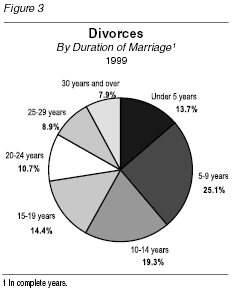NZ government stats prove the 7-year itch exists
The Seven Year Itch is often regarded as an old wives tale – but it has a sound, statistical backing.

The 7-year itch sounds just like another of those old, dusty relationship myths.
But the “itch” is all too real.
Statistics NZ reports couples married for between five and nine years made up more than one-quarter of all divorces.
And a clinical psychologist backs up the itchy statistic.
Clinical psychologist specializing in couple’s therapy, Julian Metcalfe, partly attributes the itch to a fear of a person’s own vulnerability.
So right smack-bang in the middle of five and nine, lurks that dreaded, itchy number. Seven.
Somewhere between five and nine years, those endearing, little habits of your spouse, like making little noises when they eat or mispronouncing espresso as “ex-press-oh” suddenly become game changers.
Such is the power of the itch that a movie, starring Marilyn Monroe, way back in the 50s, produced an iconic image that has instant recognition across the Western world.
There are plenty of celebrity couples to supplement these statistics. Heidi Klum and Seal, Tom Cruise and Katie Holmes and even the iconic Brad Pitt and Jennifer Anniston all split somewhere between six and seven years into their marriages.
What is it about the 7-year mark that somersaults us into this rocky, loveless territory?

“We’re always looking to see other people’s vulnerability but we’re very cautious about showing our own,” Metcalfe says.
“My theory is that they go to a certain depth of opening up but don’t go as far as they might,” he said. “Then their needs for connection, their needs to feel valued, their needs to feel cherished and wanted remain unmet.
“We just get hooked into some kind of pattern.”
Metcalfe said he can only assume that for many people, the “breaking point” in this pattern occurs between five and nine years.
“Some need isn’t met and then they start to look outside the relationship rather than address that with their partner they start to think maybe I’d be better off not with my partner.
“And that’s the itch.”
This is the cue for a tennis coach, or your child’s school teacher, or an old friend who understands you, to sweep you off your feet and fill that void.
“Suddenly, ‘gosh I feel appreciated I feel valued and I haven’t felt that for a long long time,'” Metcalfe said. “And you start to drift away from each other.”
Although both marriage and divorce rates have been steadily decreasing in New Zealand over the past decade, it is still an all too frequent outcome of marriage.
In 2016, 8100 married couples (16,200 individuals) were granted divorces.
So what can you do to avoid the same tragic end as Brad and Jen?
Metcalfe said a large part of combating the relationship rut is to recognise the pattern and address the problem with your partner, but to steer clear of the blame game.
“Generally couples don’t see this. They think he’s the problem or she’s the problem or they think they’re the problem,” he said.
“If you can say it in a way that doesn’t demand your partner and sounds more joining, like, ‘maybe we’re both feeling this way and maybe we could talk about it?'” Metcalfe said.
“Men, we are shockers at this, we just go kind of silent and we don’t say anything and our poor partners are horrified.
“One of the common things I hear from women is they feel invisible, they feel not seen. Men are more susceptible to feeling rejected,” he said.




